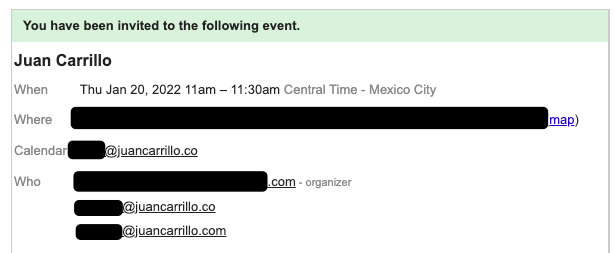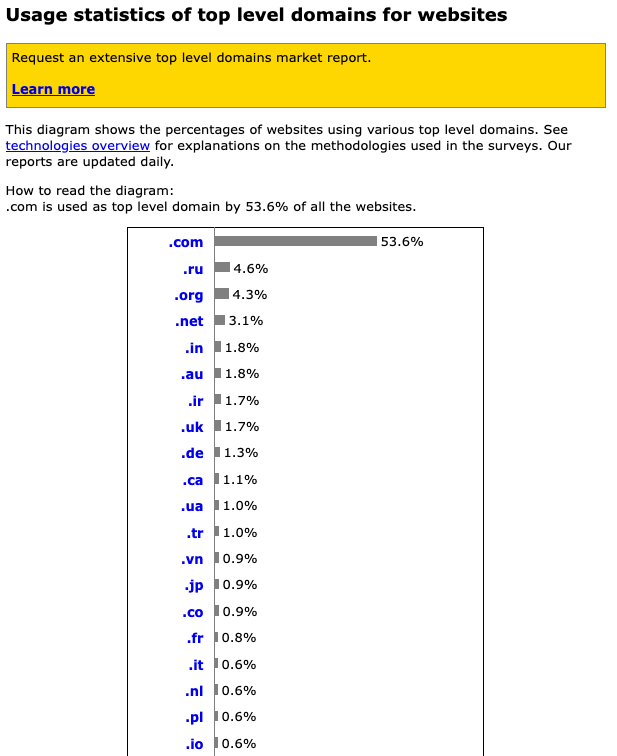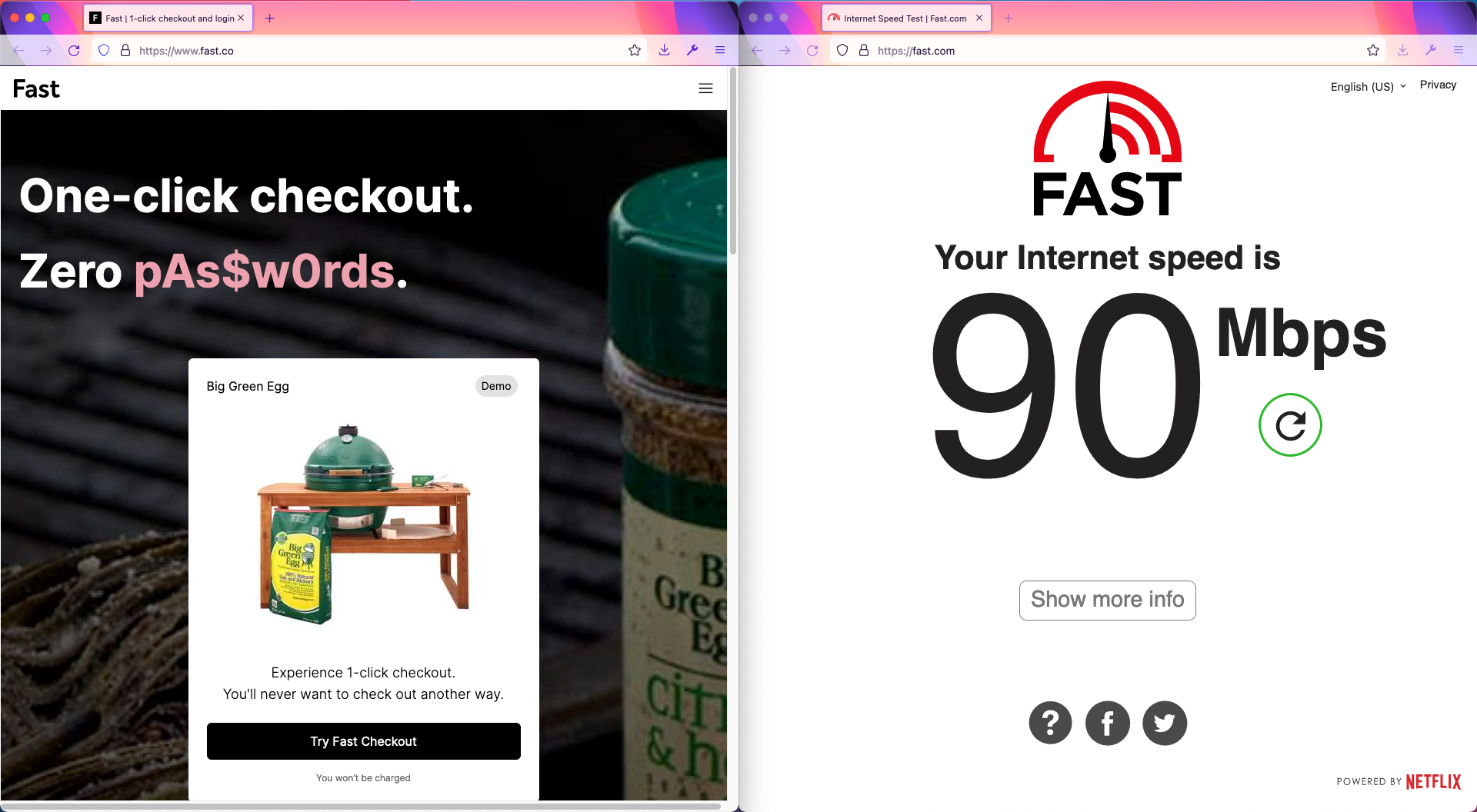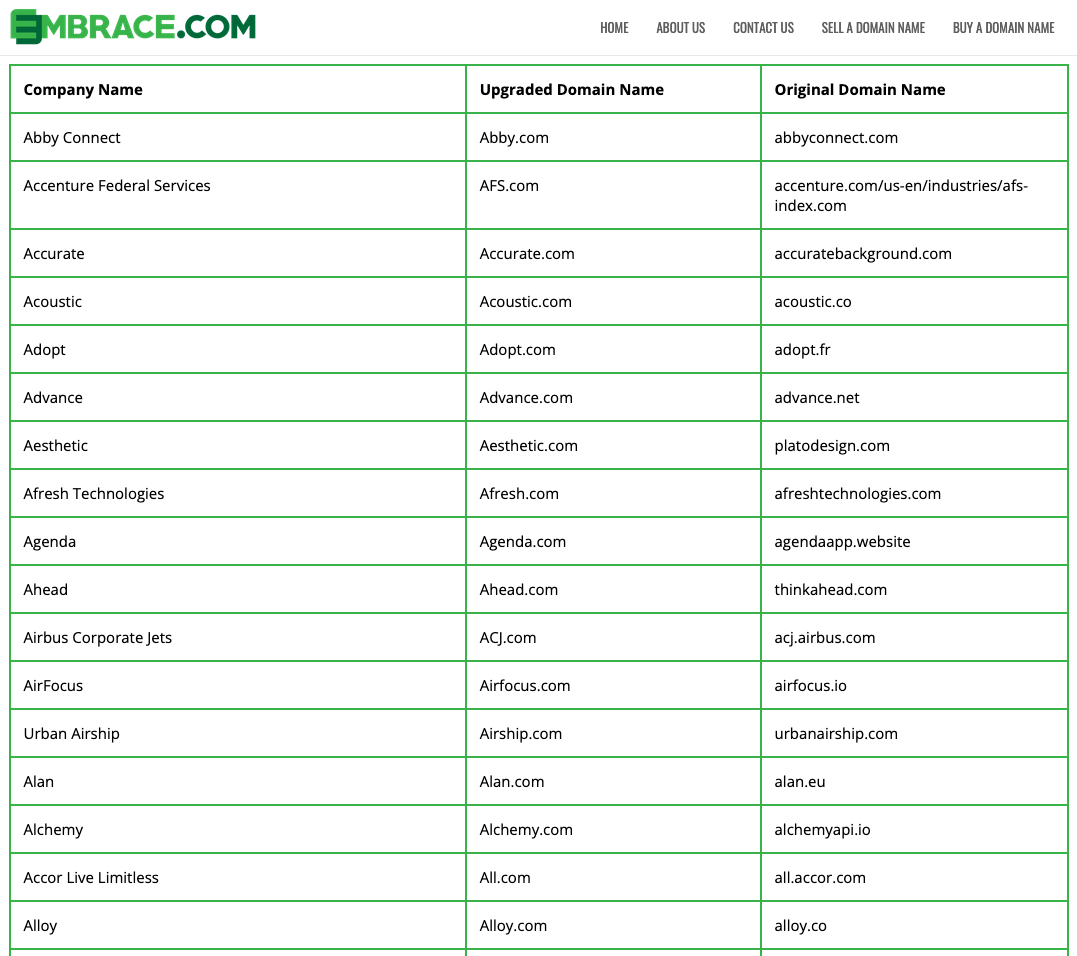The perils of a .co domain
Should you get a .co domain name? It may not be ideal for your website.
Lots of new founders, developers and creators are finding that the .com domain names they want are not available, or that they are considered "premium" domain names and are too expensive for a simple individual like you and me, which is understandable.
So, many are opting to buy .co domain names instead. .co being the country code for Colombia, but the suffix is being marketed to English speaking audiences as a close approximation of .com.
I don't blame you, many other startups, blogs and newsletters are doing the same. Just to name a few: vsco.co, hinge.co, lever.co, standardresume.co, exponentialview.co... and a bunch more.
Each one offering high quality services and products, so why not jump to the bandwagon and do the same? I know I did.
A month ago I decided to bite the bullet and just migrate to a new domain with a different TLD... but why?
Let's take a look on why using a .co domain name could become problematic in the long run and the few struggles that I had while using one.
Email addresses
These days, most websites are visited with an hyperlink or through search, so the visitor does not need to know the exact URL of your site. Yet, there is a serious problem with using a .co domain name as your email address.
Email address are often keyed in by the sender — many people will type .com instead of .co and send an email to the wrong address. Or even, they could think that you mistyped your email address. This happened to me on January:

This was not my first time struggling with my .co email address, having to repeat over and over again on the phone that my domain ends up in .co, "dot cee o", not .com — is not a fun time, they don't pass the phone test.
User perception
As you have seen, the biggest issue with a .co domain is the close approximation of .com and relativity low recognition and use that it has all over the web. .co being used by 0.9% of all websites, against the annihilating 53.6% from .com:

This is a funny paradox, as mentioned earlier:
Thus, many are opting to buy.codomain names instead..cobeing the country code for Colombia, but the suffix is being marketed to English speaking audiences as a close approximation of.com.
So.. owners are opting for .co as a close approximation of .com as a "benefit". But because of that close approximation, instead, it ends up confusing users and hindering us as owners... wait, what?
That's right. If the person you're talking with about your site or email address is not tech-savvy enough, they will get confused every single time.
People's confusion shouldn't be because of their lack of tech literacy, but who can blame them? They are used to the fact that almost any site on the web ends up in .com (53.6%!!), so they will end up typing yourname.com or yourbusiness.com, because of the close approximation that .co has to .com.
Sending free traffic to your competition (or the owner of the .com)
Most people typing an URL will type yourbusiness.com when looking for your site. what if they end up on a website that is not yours because you're not the owner of the .com site?
People not falling to your website is bad, but falling to the wrong website is worse.
The perfect example for this would probably be fast.co.
fast.co is was a 1-click checkout company, and I guess because they want to show that the process is really fast, they decided to name their company like that. No problem there.
The thing is, they are not using the more proper .com domain, fast.com, and they probably never will... Because is owned and used by Netflix.

Even though they are not competing in any significant way, fast.co has had basically zero chance to ever get the fast.com domain because is owned by a tech juggernaut.
Maybe asking Netflix for the domain could work and they could reach to an agreement? I doubt it, Netflix doesn't have to.
Eventually upgrading a domain name
Embrace.com Companies That Upgraded Their Domain Names — has a perfect paragraph mentioning the dilemma on getting that perfect .com domain name when starting out:
In the early days of a company’s lifecycle, a premium domain name – one word .com or short acronym .com – is often unobtainable.
These premium domain names hold considerable value and can sell for well into the six, seven, and even eight figures.
A lack of funds or an unavailable domain name means that a company must launch their business on a less desirable domain name that lacks the allure, gravitas, and trust of a premium .com domain name.
A business may start out with a non-.com domain name or a .com domain name that doesn’t match its brand name with the hope of upgrading in the future.
So, if you're just getting started... don't worry too much on getting that perfect .com domain name (of course, if you can get it right from the get-go, go for it), most companies didn't start out with it anyway.
If you start getting traction, you can eventually upgrade.
These also include companies that upgraded from .co to .com like Acoustic.com and Alloy.com.

How to pick a top-level domain
This post has been specifically about .co domain names, but I suspect that the same applies to many other top level domains whether you're a founder, a developer, a creator or you just want to launch something on the web.
When choosing a domain, I would follow this order of precedence:
- The well-old reliable trio:
.com,.org,.net. - If your audience is tech-savvy, seems fit for your product and the above are not available:
.dev,.appand maybe.ioor.ai. - The most expensive lesser known domains, like
.so.
In any case, do everything in your power to get the well-old reliable trio.
Cases which I'd use a .co domain
I wouldn't use .co domain name again as a main domain for a business, blog or newsletter, except on the following cases:
- URL shortener, like
apple.co(from Apple),t.co(from Twitter),g.co(from Google) androk.co(from RemoteOK). People won't type this kind of URLs most of the time and I won't be using it as an email address, so it's alright using it for that purpose. - Prevent typosquatting due to misspellings of
.comdomains. i.e.apple.coredirects toapple.comand coincidentally, they use it as a URL shortener. - My target audience is from Colombia.
- The
.comdomain name I want isn't available (as usual) and I'm planning on upgrading eventually once I get more traction and money.
Other top-level domains that I'd think about not using
.tech. It's just a worse, longer, barely used (0.1%) and stupidly expensive alternative to.dev,.app,.ioand.ai. And, of course, is not.com,.orgor.net..io. Yes, I mentioned that maybe.iocould be a great alternative when the well-old reliable are not available, but tilt.dev and diagrams.net (previously draw.io) made me reconsider. Diagrams.net on the major problems with .io domains:
There are two major problems with .io domains:
- The first is that the islands which should own the domain suffix, don’t, thanks to a wonderful piece of modern day British Imperialism. If you ever feel the need to donate to us, please give it to a more worthy cause.
- Secondly, there was a security issue with the .io domain. In 2017, a researcher managed to take control of four of the seven authoritative name servers for the .io domain. We accept that mistakes can happen, strong processes limit the chances of them happening, but they still can.
However, the domain administrator made no attempt, at any time, to communicate with anyone about the issue. We’ve no evidence to suggest there is anything to be worried about, but the complete lack of communications means we have lost trust in whoever controls .io domains.
So there's that. Take it with a grain of salt, but consider it when getting a .io domain name.
.xyz. Avoid at all costs all domains which are priced incredulously cheap.
Just like Gordon Hempton mentioned on The Perils of an .xyz Domain and all the issues that carry using an.xyzdomain name:
The poisoning of the proverbial .xyz well was most likely caused by really cheap prices and promotions causing them to be chosen by spammers. Something to keep in mind
At the end of the day, this is my perception. If you are already too deep into using your .co domain name (or any domain name for that matter), maybe you shouldn't change it and just stick with it, because...
Changing your domain name is a pain.
Creating 301 redirects to your new site, telling Google about your new site on Search Console, risk losing a bunch of traffic, creating new email addresses, changing links, build your email deliverability for the new domain from the ground-up... and probably more stuff depending on your business case.
Not impossible and won't take you more than a day or a week if you know what you're doing, but not the most comfortable and productive work I've ever done, I can tell you that.
vsco.co acquired their corresponding .com domain name, and if you go to vsco.com it will redirect you correctly to their main .co site. Notion did the same, notion.com redirects to their main site notion.so.
Many other businesses are sticking with their OG domain and they are thriving.
Hopefully this article was useful and helps you on your decision when considering a .co domain name for your next project, but preferably, get a .com, .org or .net if possible.
Until next time!
